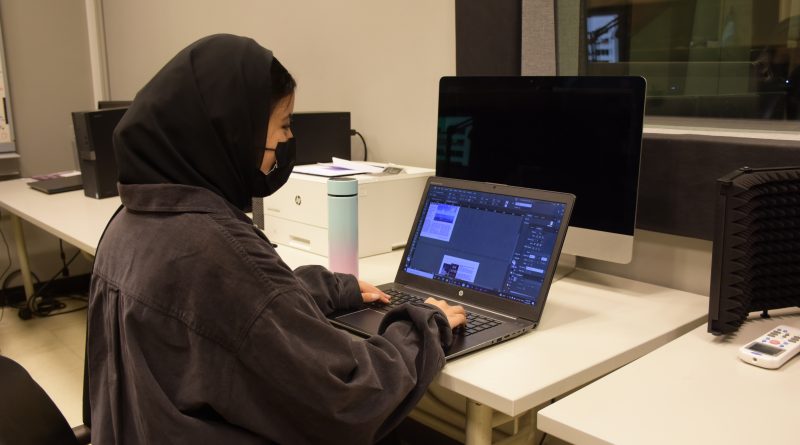How to Overcome Cyber Threats
By: Haya Hossam
@Hayahossamm
Whether connected at home, in a hotel, in the classroom, or at the office, it’s crucial that people do their part to stay safe and secure online since cyber threats and hacks have become intrusive everywhere on social media and on any electronic device.
Chief Information Security and Risk Officer at AUC Wessam Maher told the audience at the Be Cyber Smart information session at Bassily Auditorium on November 3 that cyber threats can cause electrical blackouts, failure of systems, and breaches of private data.
The session highlighted tips on how to be “CyberSmart’’ and to take precautionary measures while living in the virtual age. It also offered a detailed explanation of the types of hacks that cybercriminals make to track people’s private data.
Maher also warned of the theft of valuable and sensitive information such as passwords, and phishing attacks.
According to Google Arts and Culture, phishing is a type of cyber attack where a scammer sends a fraudulent message designed to trick a human victim into revealing sensitive information to the attacker, or deploys malicious software on the victim’s infrastructure, like ransomware.
“Hotel, and public restaurant WIFI are usually unsecured [and] connecting the phones to them is basically sharing a toothbrush with a friend. People are sharing personal information, secret documents, location, chats, and all private material with the public,” said Maher.
Computer Science major Steven Rosaik believes that everything around us is surveilled and that people should be cyber literate. He says that every time one visits a website, there’s a chance that several different corporations are following every move and where you head next after one visits their page.
The information session also warned that accepting the policies and the cookies of websites blindly is media illiteracy; people end up giving their consent to tracking and data invasion without reading. Information is valuable and that’s why cybercriminals often target organizations where they can harvest personal data. They can use it to commit crimes like identity theft or sell it on the dark web.
“One of the most important cyber skills is to be aware of what one is publishing online from photos, information, status and all personal preferences or information since everything can be used against them someday,” Maher said.
“The second most important skill is to think before clicking, whether on links, or ads, and to avoid the sense of curiosity to play with one’s feelings,” said Maher.
One example of cyber hacking that was mentioned in the session focused on how cybercriminals set up fake websites with the same format of an official page. They could create a Facebook homepage, for example, that allows people to sign up to create an account – this will then pull in all their sensitive information. Maher says that everyone should check the URLs before giving away their data .
“There are four important steps to keep a cyber safe: turn on multi-factor authentication on devices, update the software, think before clicking and finally use strong passwords made of uppercase and lower case letters, numbers, and symbols as they are harder to [guess],” Youssef Sherif, former Technology and Innovation Chairperson at the Student Union, told The Caravan.
Cyber crimes, in the meantime, are increasingly targeting children.
According to the “Kids Health Organization” website, it is important to teach children to use social media wisely since there are many risks and things kids and teens should avoid. Social media can be a hub for things like cyber bullying and questionable activities. Without meaning to, kids can share more online than they should.
Since this is a generation where children are always using electronic devices, parents should monitor their children’s usage of devices and social media and check the type of websites or applications they are using.
“Children should not put any personal information in their passwords and they should be warned from sharing them with their friends. They should not accept any requests from people they do not know, avoid chatting with unfamiliar people, and finally, download games that are age friendly,” said Sherif.
Looking over your shoulder does not mean you are paranoid. Users should report strange emails, messages, links or anything that looks dangerous to their cyber security team at their institution so as to evaluate whether or not they are trustworthy.
“Be CyberSmart and literate for a more safe and private life,” says Maher.




